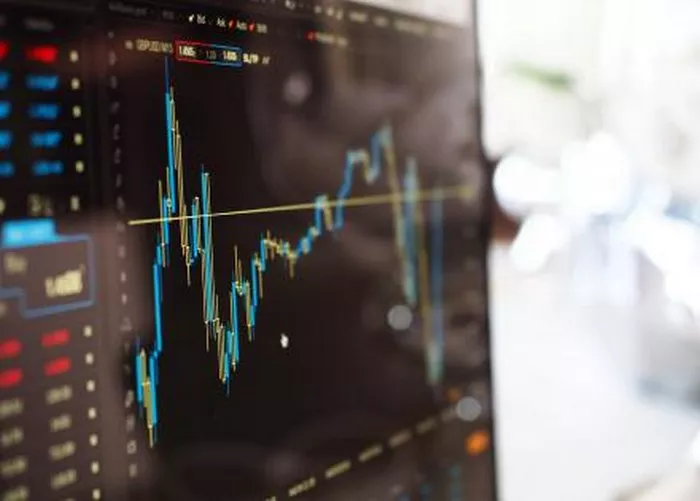Entering the world of financial markets can be an exhilarating yet challenging endeavor, especially for those considering futures trading. The term “futures” often evokes a sense of complexity and risk, leaving many prospective traders wondering: Are futures hard to trade? In this comprehensive article, we will explore the intricacies of futures trading, highlighting the potential challenges, key considerations, and strategies to navigate the complexities of this dynamic financial instrument.
Understanding the Basics of Futures Trading
Before delving into the perceived difficulty of trading futures, it’s essential to grasp the basics of this financial instrument. Futures are standardized financial contracts that obligate the buyer to purchase or the seller to sell a specified asset at a predetermined future date and price. These contracts trade on organized exchanges, providing a transparent marketplace for participants to speculate on price movements, hedge risk, or gain exposure to various asset classes.
Risk and Leverage in Futures Trading
One aspect that contributes to the perception of difficulty in futures trading is the inherent risk and leverage involved. Futures contracts typically require a fraction of the total contract value as an initial margin, allowing traders to control a more substantial position with a relatively small amount of capital. While leverage can amplify returns, it also magnifies potential losses. Understanding and managing this risk is a fundamental challenge for futures traders.
Market Volatility and Uncertainty
Futures markets are known for their inherent volatility, driven by a myriad of factors such as economic indicators, geopolitical events, and supply-demand dynamics. The continuous fluctuation in prices can be intimidating for traders, particularly those new to the futures arena. Successful futures trading requires the ability to navigate and capitalize on market volatility while effectively managing risk.
See Also: How do you make money on commodity futures?
Complexity of Contract Specifications
The standardized nature of futures contracts, while providing a transparent marketplace, can also contribute to the perceived complexity. Each futures contract has specific specifications, including the contract size, expiration date, and tick size. Understanding these details is crucial for accurate trade execution and risk management. Novice traders may find it challenging to navigate the multitude of available contracts and choose the most suitable ones for their trading strategies.
Technical Analysis and Chart Interpretation
Technical analysis plays a significant role in futures trading, with traders relying on charts and indicators to make informed decisions. Interpreting price charts, identifying trends, and recognizing potential reversal patterns require a certain level of technical expertise. Traders must be adept at using charting tools and understanding technical indicators to gain insights into market movements. The learning curve associated with technical analysis can be a hurdle for those new to futures trading.
Market Liquidity and Execution Challenges
Liquidity, or the ease with which an asset can be bought or sold without affecting its price, is a critical consideration in futures trading. Some futures contracts may have lower liquidity than others, leading to wider bid-ask spreads and potential slippage during trade execution. Traders must carefully assess the liquidity of the contracts they choose to trade to minimize execution challenges.
Educational Resources and Continuous Learning
To overcome the perceived difficulty of trading futures, a commitment to continuous learning is essential. Futures traders need to stay informed about market developments, economic indicators, and global events that can impact prices. Utilizing educational resources, attending webinars, and staying engaged with market analysis can contribute to a trader’s knowledge base and enhance their ability to navigate the challenges of futures trading.
Risk Management Strategies in Futures Trading
Effectively managing risk is a cornerstone of successful futures trading. Traders must implement risk management strategies, including setting stop-loss orders, diversifying positions, and maintaining a disciplined approach to trading. The ability to cut losses quickly and let profits run is a mantra often cited by successful futures traders, emphasizing the importance of sound risk management practices.
Simulated Trading and Paper Trading
For those looking to gain hands-on experience without risking real capital, simulated trading or paper trading can be invaluable. Many brokerage platforms offer simulated trading environments where traders can practice executing trades, test strategies, and familiarize themselves with the dynamics of the futures market. This allows traders to build confidence and hone their skills before committing real funds.
Utilizing Technology and Trading Platforms
Advancements in technology have significantly influenced the accessibility and efficiency of futures trading. Modern trading platforms provide a user-friendly interface, real-time market data, and advanced charting tools. Traders can execute trades with a few clicks, access research reports, and leverage algorithmic trading strategies. Embracing technology can help traders overcome the perceived complexity of futures trading.
Professional Guidance and Mentorship
For those seeking a more personalized approach to learning, seeking professional guidance or mentorship can be beneficial. Experienced futures traders can provide insights, share practical tips, and offer guidance on navigating the challenges of the market. Mentorship programs, online forums, and networking with seasoned traders can provide valuable support for those looking to enhance their skills and confidence.
Conclusion
In conclusion, the question “Are futures hard to trade?” is subjective and depends on various factors, including an individual’s level of experience, risk tolerance, and commitment to learning. While futures trading presents challenges such as market volatility, leverage, and complex contract specifications, it also offers opportunities for those willing to invest time in education and skill development. By embracing risk management strategies, utilizing technology, and seeking continuous learning, traders can navigate the complexities of futures trading and potentially unlock the benefits of this dynamic financial instrument.


